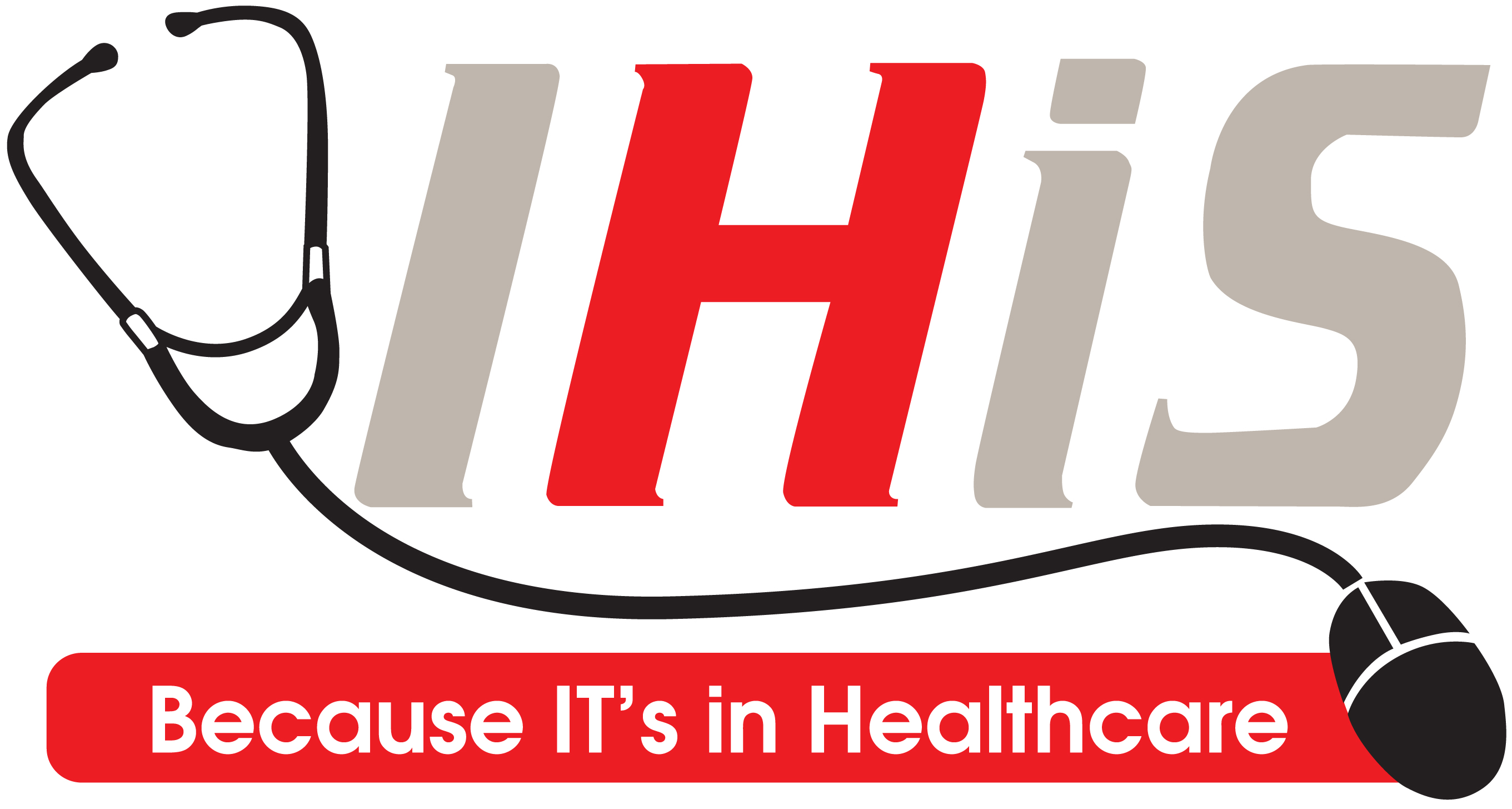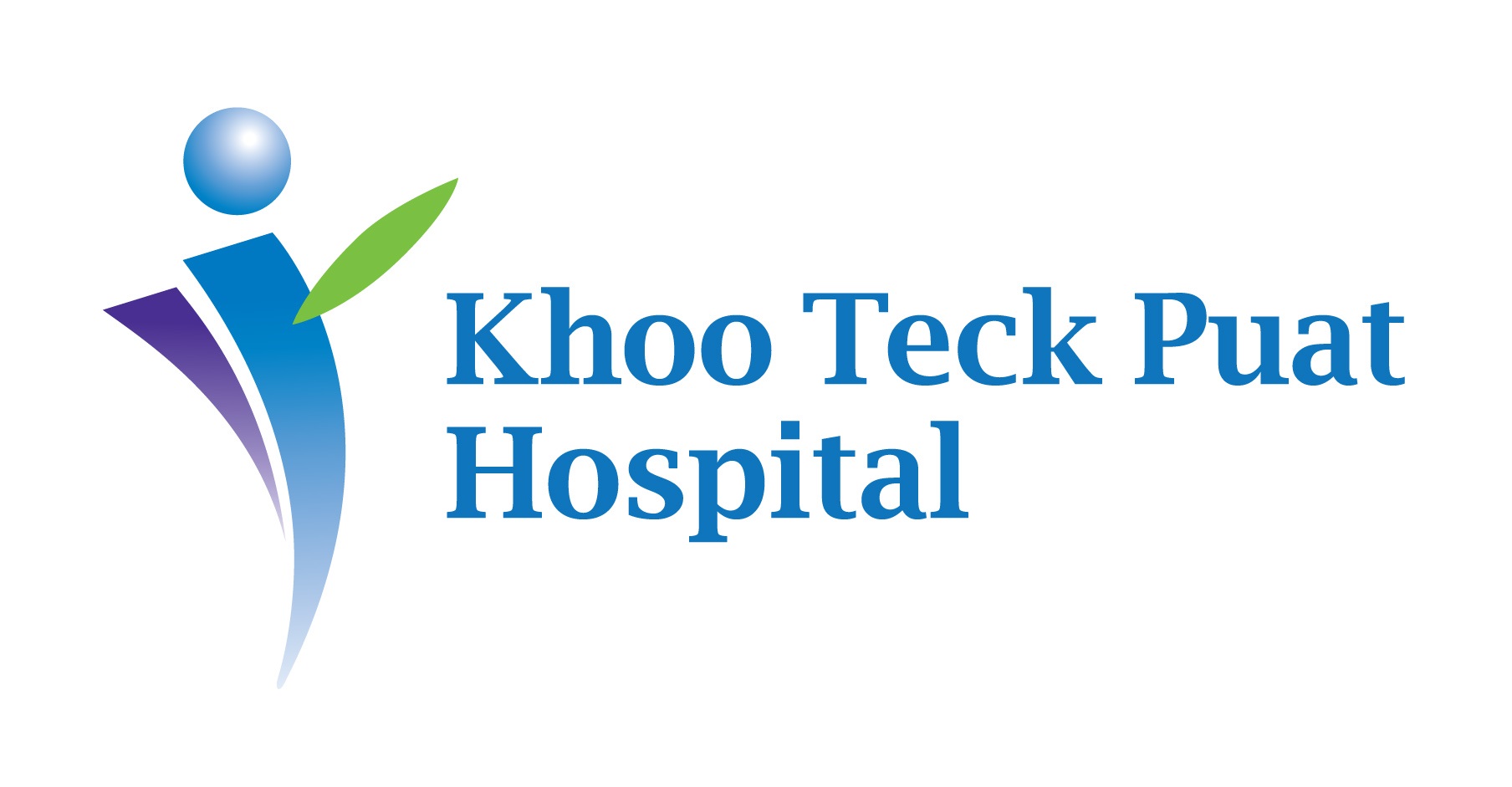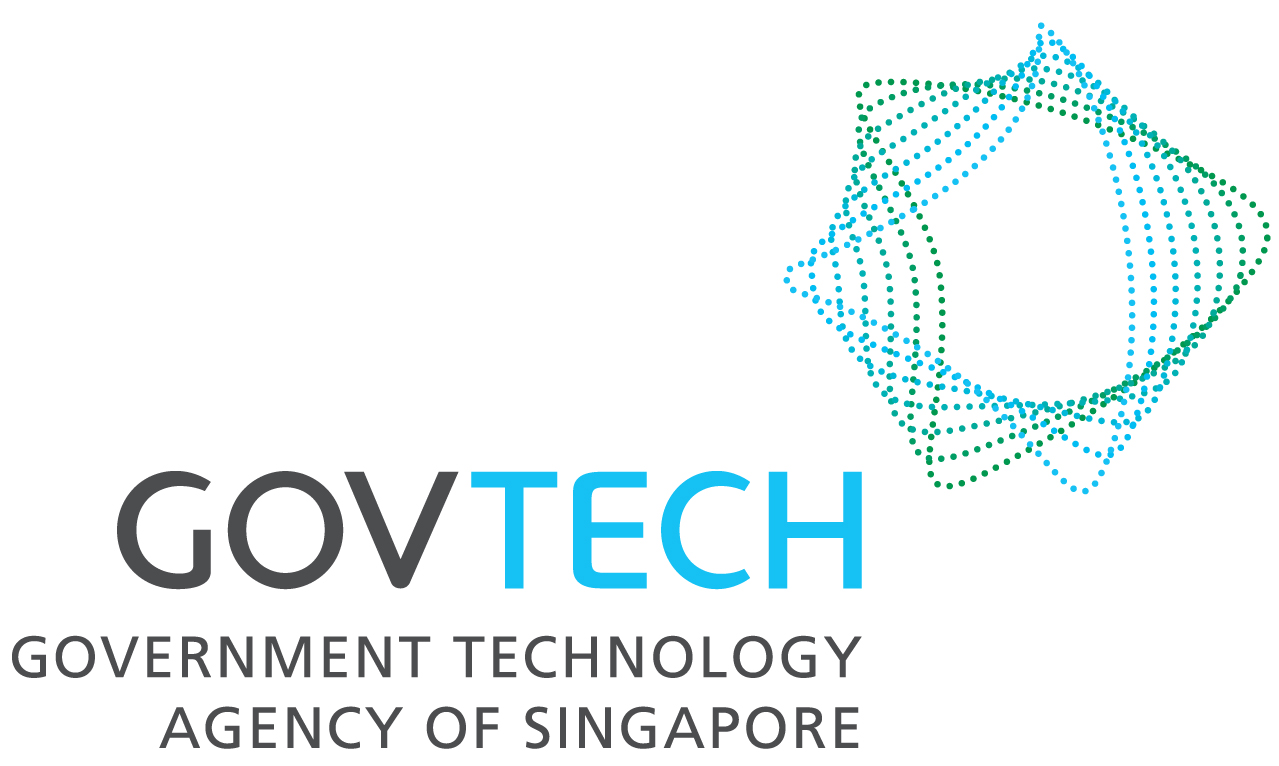|
SUPPORTED BY: |
|
 IHiS is a multi-award-winning healthcare IT leader that digitises, connects, and analyses Singapore's health ecosystem. Its ultimate aim is to improve the Singapore population's health and health administration by integrating intelligent, highly resilient, and cost effective technologies with process and people.
IHiS played a key role in helping all major public healthcare institutions become amongst the first in Asia Pacific to achieve HIMSS EMRAM Stage 6 and 7, international benchmarks for advanced technology used in patient care.
Transforming healthcare through smart technology, IHiS has garnered more than 80 awards for its innovations. It supports more than 40,000 healthcare users in Singapore's health ecosystem through the application of clinical informatics, computer science, data science, mechatronics, standards based IT that enables information exchange and cross boundary workflows, analysis, statistical and machine learning techniques to discover insights. For more information, visit https://www.ihis.com.sg. |
|
 The U.S. Commercial Service is the trade promotion arm of the U.S. Department of Commerce’s International Trade Administration. U.S. Commercial Service trade professionals in over 100 U.S. cities and in more than 75 countries help U.S. companies get started in exporting or increase sales to new global markets. For more information, visit www.export.gov/singapore. |
|
SUPPORTING HOSPITALS |
|
 Khoo Teck Puat Hospital (KTPH), a 590-bed general and acute care hospital, opened in June 2010. Serving more than 700,000 people living in the northern sector of Singapore, KTPH combines medical expertise with high standards of personalised care, set within a healing environment, to provide care that is good enough for our own loved ones. From intuitive wayfinding to logical clustering of services, KTPH's design is focused on providing a hassle-free experience for patients. The hospital has been designed with patients’ comfort in mind. Since its opening, the building has garnered numerous awards for its green and energy efficient design. Patients can enjoy comfortable accommodation in different categories of wards with views of greenery and naturally cool air from improved ventilation. KTPH also provides a wide range of outpatient specialist services. For more information, visit https://www.ktph.com.sg. |
|
 KK Women’s and Children’s Hospital has evolved over the decades, since its founding in 1858, into a regional leader in Obstetrics, Gynaecology, Paediatrics and Neonatology. Today, the 830-bed hospital is a referral centre providing tertiary services to handle high-risk conditions in women and children.
More than 600 specialists adopt a multi-disciplinary and holistic approach to treatment, and harness compassion, medical innovations and technology to deliver the best medical care possible.
Accredited by Joint Commission International as an Academic Medical Centre, KKH believes that world-class clinical training and research are imperative in raising the standard of care. Hence, the Hospital has adopted a culture of innovation as it strives for world-class clinical leadership. As we continually raise the bar on clinical excellence, we are sensitive to our patients’ needs for a pleasant hospital experience – one where they receive seamless service and enjoy the warmth of compassionate care in a healing environment. For more information, visit https://www.kkh.com.sg. |
|
JurongHealth Campus
embarked on an exciting journey to arrive at Ng Teng Fong General Hospital
(NTFGH). We started planning on a clean slate and focused on a hospital design
that was built around patients to offer integrated care and services. Breaking
new ground, NTFGH and Jurong Community Hospital are the first hospitals in
Singapore to be designed and built together from the ground up as an integrated
healthcare development. They were envisioned to transform the way healthcare is
provided to the community and designed to deliver patient-centred services in a
seamless and integrated manner. They complement each other for better patient
care, greater efficiency and convenience. The hospital planning process took
into account how patient care, treatment and rehabilitation may continue
seamlessly between the two hospitals. The 700-bed NTFGH showcases revolutionary features and processes, some of
which are a first in Singapore.
For more information, visit https://www.ntfgh.com.sg/. |
|
TTSH is one of Singapore’s largest multi-disciplinary hospitals with 173 years of pioneering medical care and development. The hospital has 45 clinical and allied health departments, 16 specialist centres. It also has three institutes that are spearheading care, research and innovations in geriatric medicine, infectious diseases and ophthalmology. Powered by more than 8,000 healthcare staff, TTSH sees over 2,500 patients at its specialist clinics and some 460 patients at its emergency department every day. TTSH is part of the National Healthcare Group, providing holistic and integrated patient care.
With a strong quality culture steeped in patient safety, TTSH constantly challenges itself to provide faster, better, cheaper and safer care for patients. To achieve this, the hospital keeps abreast and believes in investing in its staff, facilities, medical technology and system improvements. In recognition of its commitment to excellent patient care and its comprehensive range of quality healthcare services, TTSH has been awarded the ISO 14001 and OHSAS 18001 certification as well as the prestigious Joint Commission International (JCI) accreditation.
|
|
SUPPORTING ORGANIZATIONS |
|
The Australasian College of Health Informatics is the professional organisation for Digital Health and e-Health in the Asia-Pacific Region. The credentialed Fellows and Members of the College are national, regional and international thought leaders, experts and trusted advisers in Digital Health.
ACHI sets standards for professional practice and education in Health Informatics, provides evidence-based guidance to jurisdictions, supports initiatives, facilitates inter-disciplinary collaboration and mentors the community. For more information, visit https://www.achi.org.au. |
|
AHPI strives to fulfil objectives, of the International Convent on Economic, Social and Cultural Rights, to which India has acceded and by which society and community has right to health in terms of availability (quantity to meet needs), accessibility (non-discriminatory and affordable), acceptability (ethical) and quality (clinically sound).
AHPI, as conglomeration of entire healthcare providers i.e. hospitals/nursing homes/clinics, diagnostic centres, medical equipment companies, insurance providers and all others that are accountable to the community, will work closely with the key stake holders i.e. the Government and the Society to realise the universal health coverage. AHPI will collaborate and partner with other associations, accrediting bodies, regulatory agencies, councils, research institutions, academic institutions and solicit their support to realise the vision and mission as above. AHPI will actively work with the government, policy making institutions, various commissions and committees on proposed legislations/regulations and other reforms, which can enable healthcare providers to deliver affordable healthcare services. AHPI will promote and recognise the highest professional and ethical standards, healthcare service delivery, innovative medical technology and applied research for the betterment of patient safety and community Well Being. For more information, visit https://www.ahpi.in.
|
|
We began in 1992 as the Care Liaison Services (CLS) under Ministry of Health (MOH) to coordinate and facilitate the placement of elderly sick to nursing homes and chronic sick units. In 2001, CLS became the Integrated Care Services (ICS) and expanded to take on a greater role in discharge planning and facilitate the transition of patients from hospitals to the community.
ICS was then renamed the Agency for Integrated Care (AIC) in 2008, and a year later, AIC was established as an independent corporate entity under MOH Holdings, and assumed the role of National Care Integrator. Today, AIC continues in what we are tasked and seeks to create a vibrant care community enabling people to live well and age gracefully. We work closely with Community Care partners in supporting them in service development and manpower capability building to raise the quality of care and bringing care support closer to those in need. For more information, visit https://www.aic.sg.
|
|
With the pervasive influence of information technology, many countries are now aggressively applying this technology to the management of health data and patient care. In view of the strong progress that has been made in this field among countries in the Asia Pacific in recent years, and recognizing the importance of the Asia Pacific as a region in the forefront global scientific, economic and cultural growth and development, the International Medical Informatics Association (IMIA) launched the Asia Pacific initiative at its General Assembly in October 1993.
For more information, visit https://www.apami.org.
|
|
Established in 2001, the Health Promotion Board (HPB) is a government organisation committed to promoting healthy living in Singapore. HPB is a credible and authoritative source of evidence-based health information that seeks to empower the Singapore public with knowledge and skills to take ownership of their health and live a healthy lifestyle. We, in turn, are guided by evidence-based health knowledge to formulate and implement health policies and programmes that will improve the nation’s health.
We empower the Singapore public to embrace life fully through our wide range of health promotion and disease prevention programmes. These include health and dental services for school children, workplace health programmes and physical activity programmes, to name a few. We also work with the community and initiate new programmes over time to address their health concerns. We believe that we can achieve a healthy nation, not alone, but through building meaningful partnerships with individuals, private and community sectors, and schools and healthcare providers to create. Our goal is to increase the quality and years of healthy life, as well as prevent illness, disability and premature death. By 2020, we aim to enable Singaporeans to have access to healthy living at the doorstep of every home, school and workplace through the Healthy Living Master Plan, thus making healthy living natural and effortless for Singapore. For more information, visit https://www.hpb.gov.sg.
|
|
Health Informatics New Zealand (HiNZ) is a not-for-profit organisation with a focus on education and networking. HiNZ supports the field of health informatics and runs a range of events. Its annual conference is the largest digital health event in New Zealand and it has an extensive archive of expert presentations on digital health. HiNZ members include health sector managers, clinicians, IT experts, industry managers, academics, students, and government personnel. HiNZ builds and strengthens connections between these groups and provides an impartial meeting place for sharing ideas and building knowledge about the use of IT in the health sector. The organisation was founded in 2000 and is an incorporated society with a volunteer elected board and a paid management team. The HiNZ constitution contains the governing regulations of our organisation. For more information, visit https://www.hinz.org.nz. |
|
Profile to be updated For more information, visit https://www.integratedcarefoundation.org. |
|
Profile to be updated For more information, visit https://www.jami.jp. |
|
JAHIS provides secure and user-friendly information systems related to healthcare and welfare in coorperation with relevant organizations and the member corporations. For more information, visit www.jahis.jp. |
|
The Society was established by leaders in the academia and industry of healthcare informatics fields to meet the social demands for advancing information society. The activities of the present society are focused on healthcare areas including, but not limited to, medicine, dentistry, traditional Korean medicine, nursing, and pharmacy. The Society also welcomes disciplines, such as computer science, industrial engineering, and information business informatics. For more information, visit www.Kosmi.org. |
|
NHG’s vision is “Adding years of healthy life”. This vision departs from merely healing the sick to the more challenging and infinitely more rewarding task of preventing illness and preserving health and quality of life. NHG is a leader in public healthcare in Singapore, recognised at home and abroad for the quality of its medical expertise and facilities. Care is provided through an integrated network of nine primary healthcare polyclinics, acute care and tertiary hospitals, national specialty centres and business divisions. Together, they bring a rich legacy of medical expertise to our philosophy of patient-centric care. By designing accessible and seamless healthcare services around patients' needs, NHG ensures that patient care is fully coordinated within the cluster and is also extended to a high level of collaboration with other healthcare providers at home and abroad. For more information, visit https://www.corp.nhg.com.sg. |
|
The National University Health System (NUHS) is an integrated Academic Health System and Regional Health System in Singapore that delivers value-driven, innovative and sustainable healthcare. Throughout the history of our institutions, our staff has worked across the health system to advance the tripartite missions of achieving clinical excellence, developing the next generation of healthcare professionals, and changing the natural history of chronic diseases through research. At NUHS, we leverage our unique position as an academic health system to tap on the wealth of resources residing within the whole of the National University of Singapore (NUS). Through collaborations with NUS faculties, we are able to draw upon their academic, research and creative capabilities to develop solutions for existing and emerging health and healthcare needs of the Singapore population. As part of our regional health system responsibility, we work in close collaboration with community hospitals, general practitioners, family medicine clinics, nursing homes and other community and social partners to provide integrated care to the community. Institutions in the NUHS group include three hospitals - National University Hospital (NUH), Ng Teng Fong General Hospital and Jurong Community Hospital; three National Specialty Centres - National University Cancer Institute, Singapore (NCIS), National University Heart Centre, Singapore (NUHCS) and National University Centre for Oral Health, Singapore (NUCOHS); a polyclinic group - the National University Polyclinics (NUP); one medical centre – Jurong Medical Centre; and three academic health sciences institutions – NUS Yong Loo Lin School of Medicine (including the Alice Lee Centre for Nursing Studies), NUS Faculty of Dentistry and NUS Saw Swee Hock School of Public Health. With member institutions under one academic health system, NUHS creates synergies as a fully integrated cluster to provide seamless care from prevention to home care, and with our academic institutions, to continue to develop solutions for Singapore’s healthcare challenges, and nurture the next generation of healthcare professionals.. For more information, visit www.nuhs.edu.sg. |
|
We are an independent, representative organisation that advocates on behalf of our members and the health sector to decision-makers, policy setters and strategic planners for improved health services enabled by smart technology-based solutions. Additionally, we provide a wide range of membership-based benefits that includes networking events, newsletters, information flows, connection services and much more. We have a well established working relationship with the Ministry of Health and we act as the primary conduit of information and views between the health technology sector and Government. We also have a number of strategic collaborations with key stakeholder groups including the National Health IT Board, NZ Trade & Enterprise, Callaghan Innovations, Ministry of Business, Innovation & Enterprise, leading Universities, research institutions and innovation hubs. For more information, visit https://www.healthit.org.nz. |
|
Patients are always at the heart of all we do. As an Academic Medical Centre, the convergence of clinical care, education and research enables us to pursue innovations to deliver better and more accessible care to our patients. Our institutions are centres of excellence, and we have taken strides to build a strong care network, transcending institution boundaries so that our patients are able to get the right care when they need it. To learn more about the progress of our Academic Medical Centre in patient care, research, and medical education, watch the SingHealth Duke-NUS Academic Medical Centre video here. For more information, visit www.singhealth.com.sg. |



